Getting Your Commercial Kitchen Up and Running
August 29, 2019Getting your commercial kitchen up and running.
Serving Ware
If there’s nothing to serve the food on, there’s no restaurant. You’ll need tons of cutlery, plate ware, bowls, ramekins, cups, and glasses. Consider the number of tables you can fit in your restaurant and how many guests you hope to serve every night when factoring in how much to buy. Consider breakage – in the chaotic environment of commercial kitchens; it’s not uncommon to lose a plate or glass every few shifts.
Cooking Equipment for Your Commercial Kitchen
Consider what tools you’d need to execute your entire menu in one shift. Pots of all sizes, sauté pans, tasting spoons, mixing spoons, sheet pans, whisks, fish spatulas, ladles, bowls of all sizes, squeeze bottles, bench scrapers – the list goes on and varies widely depending on the type of food you want to make. You’ll also need more of each item than you expect.
Safety Equipment and Your Commercial Kitchen
Make sure your kitchen has proper safety equipment. A well-stocked first aid or medical emergency kit is crucial in a commercial kitchen that runs on fire and knives. Check your local fire department guidelines before purchasing fire, safety, or sanitation equipment, and avoid potential complications by always keeping your kitchen up to fire code standards.
Commercial Kitchen Freezers and Refrigerators
All commercial kitchens require a refrigeration system of some type. Without a fridge, you can’t keep the ingredients and prepared foods fresh. Freezers are also crucial for inventory management because it’s much more cost-effective to buy 300 steaks and freeze them than to buy ten steaks every day.
Industrial-grade refrigeration units are designed to meet the unique needs of the food industry. For example, they can cool large pots of sauce to a safe temperature in record time, so they’re a crucial purchase for any food handling operation. You’ll have to decide between reach-in units and walk-in units.
Make sure to seek professional help for installation and that you know how to properly maintain your unit, as they can be costly to repair.
Food Preparation Counters and Cutting Boards
Prep tables, counters, and cutting surfaces are essential to any commercial kitchen and come in various sizes. Choose preparation surfaces made of stainless steel, sturdy against corrosion, doesn’t absorb bacteria from food or meat and can withstand the harsh cleaning products used in commercial kitchens. On the line, you’ll want food prep counters that have small refrigerators underneath them for easy access to food prepped for each station.
As for cutting surfaces, choose either plastic or wooden cutting boards. Plastic boards are more comfortable to sanitize but can develop deep grooves that can hide bacteria. Wooden boards are generally tougher to clean than plastic ones but don’t develop grooves as quickly.
Ranges and Ventilation
If your restaurant plans on making anything but salad, you’ll need a kitchen range. The range is the powerhouse of the kitchen, so it’s essential to choose one that meets both your cooking needs. Like residential ranges, commercial units can be either gas or electric. If you’d prefer a visual, responsive cooking experience, go for a gas range.
Gas ranges make it easier to judge heat levels and change from high to low settings much faster than their electric counterparts. Alternatively, electric ranges have smooth, elegant, easy-to-clean designs and come in three sub-categories.
Standard electric ranges use coils to heat food, whereas you cook directly on the flat surface of smooth-top electric ranges. Electric induction ranges employ magnetic coils beneath a ceramic glass top to generate heat, but they require unique magnetic cookware to work.
Ovens
Most ranges come outfitted with an oven. If your operation centers around baked goods, it may be in your best interest to purchase a range with a convection oven setting. Unlike regular ovens, convection ovens have a fan and exhaust system that blow hot air around the food. They are a great appliance for roasting, toasting, making pies and cookies, or dehydrating.
Sinks
Sinks are vital to any kitchen because they provide running water as well as space for handwashing, cleaning produce, defrosting frozen meat under running water, or washing the occasional cooking utensil as needed.
Health and safety authorities typically require commercial kitchens to install a triple-sink wash station and a commercial dishwashing machine, as well as a dedicated handwashing sink.
5 Things Every Restaurant Owner Should Do Before Buying Used Kitchen Equipment
Equipping your restaurant properly can cost a lot of money, so buying used kitchen equipment is the go-to choice for many restaurateurs. Buying used kitchen equipment for a restaurant is a bit different than buying used equipment for your home, however. You will...
Top Restaurant Technology Trends in 2018
When looking to buy restaurant supplies, you want to be on the leading edge of technology trends. This will keep your kitchen running smoothly. Let’s take a look at some of the most recent trends in restaurant supplies technology. 1. New Payment Options Who would...
5 Different Ice Shapes and Why You Should Care About Them
Ice makers are very popular in the restaurant and foodservice community because they eliminate the need to buy ice every day. And of course, adding an ice maker to your collection of foodservice equipment means you will always have ice on hand when you need it. An...
Pulping and Grinding: A Starter’s Guide to Reducing Commercial Food Waste Costs
For most restaurant owners and managers, the expenses involved in making meals are always under careful consideration. Water is needed to prepare, cook and wash food; power is necessary for food prep, cooking and cooling, and so on. However, how many of us consider...
Choosing the Right Milk Cooler: Cold Wall or Forced Air?
In a restaurant, milk is an essential to have on hand for coffee and other café-style beverages, for serving with kids’ meals, and as a key ingredient in many recipes. Keeping your milk properly chilled can be difficult without the proper restaurant equipment....
How to Choose Your Next Commercial Meat Smoker
The movies that connect with us on a personal level are the ones that linger in our memories forever. Anyone who has used a commercial meat smoker knows that they have a huge influence on the taste of a meal. You need to have just the right kitchen equipment to get a...
Are High Speed Ovens Too Good to be True?
You might have heard a few of the bold claims that foodservice equipment manufacturers have been making about high speed ovens, but they can’t be possible, right? Cooking three times as faster as regular ovens? Five times as fast? Fifteen times as fast? It may seem...
Choosing the Right Food Storage Containers for Your Restaurant
Choosing the right kitchen supplies will make a difference in your restaurant. Whether it is heavy duty kitchen equipment or food storage containers, each piece of equipment plays its own important role. Today, we are going to talk about how to choose the right food...
Tipton’s Guide to Perfect Poultry Trussing
Do you ever truss birds in your commercial kitchen? Trussing is a fantastic cooking technique because it makes poultry cook faster, look more attractive and taste better. If your commercial kitchen prepares poultry, you don’t want to miss these trussing tips. Trussing...
How to Eliminate Excess Condensation in Your Kitchen
Is your commercial kitchen getting steamy? If so, you could have more than just an uncomfortable working environment on your hands. Excess moisture in your commercial kitchen can result in the corrosion of equipment, the development of mold, and even damage to your...
The DIY Guide to Your Restaurant’s Own Garden
Stocking your restaurant supply with your own home-grown herbs and produce can truly bring your dishes to life. When it comes to food, everyone knows there’s nothing like homemade and home-grown. Having your own culinary garden, however large or small, can help you...
5 Reasons a Meat Grinder Will Set Your Burgers Apart
The more you do to prepare your foods in-house with the right kitchen equipment, the fresher and more flavorful your dishes become. There are all sorts of restaurants offering fast-food style burgers, but some diners are looking for the real deal. A fresh, juicy...
Pest Preventions to Implement in Your Commercial Kitchen
Restaurant pests: it’s something that few people want to think about. Like it or not, pest management is an essential consideration for every commercial kitchen. Offering food, shelter and water, the unprepared commercial kitchen naturally provides everything pests...
Choosing the Right Material for Your Cooking Equipment
Kitchens are very unique to their chef. Just like a car mechanic has a toolbox unique to them, so is the cooking equipment in a kitchen. And over time, the same cooking equipment become a natural extension of the chef. What tools are you using in your kitchen? It...
Kitchen Hacks for Your Home
Some people are naturally good at certain skills. We all know someone who is naturally book smart, athletic, or musically inclined. What makes you jealous of them is how easy they make tasks seem compared to you. One skill might be cooking. Your dream may not be...
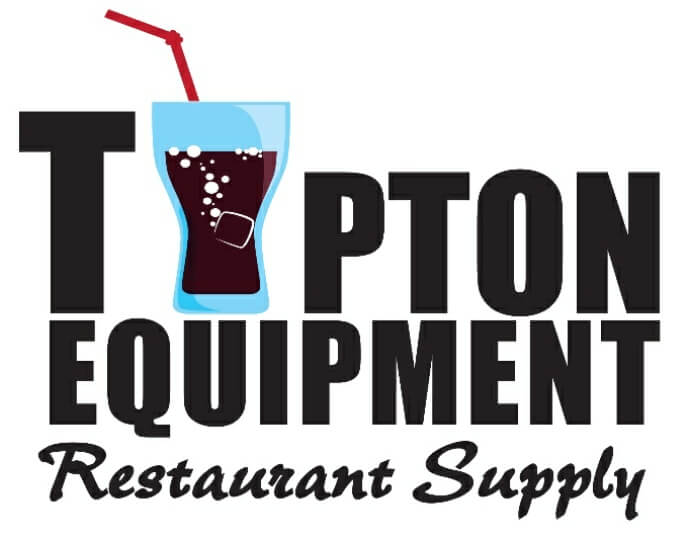






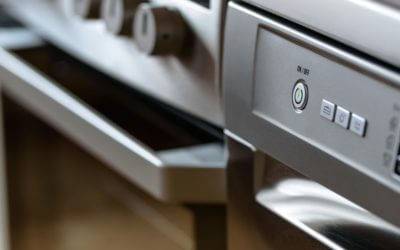

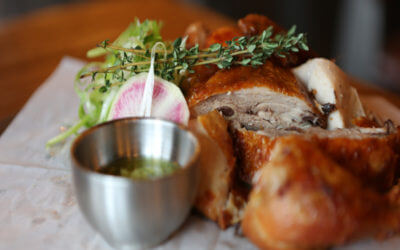


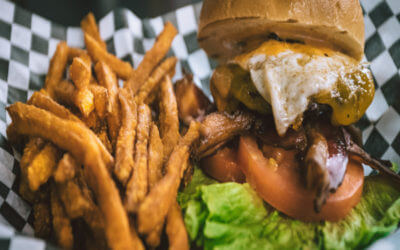
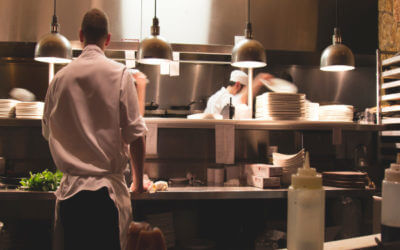


Ensuring adequate tableware is essential for any restaurant, but equally important is having reliable commercial food processing equipment to handle high-volume food preparation. With a fast-paced kitchen environment, investing in durable equipment can streamline operations, reduce downtime, and meet customer demands efficiently, helping restaurants serve quality meals without delays or setbacks in service.